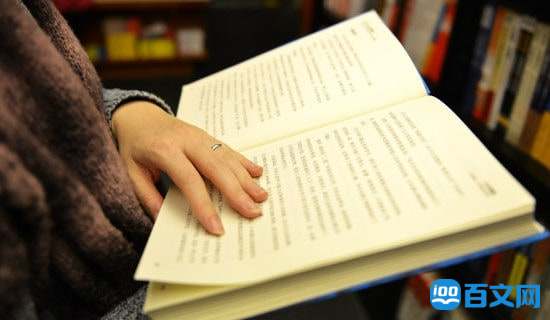2017初中英语阅读理解考前训练
阅读理解题最重要的就是理解,如果不理解,那么要想做对题是完全不可能的。为了帮助大家提高英语阅读能力,小编分享了一些初中英语阅读理解,希望能对大家有所帮助!

阅读理解【1】
Mr. Lee was in bed and was trying to go to sleep when he heard the bell ring. He turned on the light and looked at his clock. It was twelve o'clock. "Who can it be at this time of night?" He thought. He decided to go and find out. So he got of bed, put on his dressing gown (浴袍) and went to the door. When he opened the door, there was nobody there. "That is very strange." Then he went back to his bedroom, took off his dressing gown, got back into bed ,turned off the light and tried to go to sleep.
A few minutes later he heard the bell again. Mr. Lee jumped out of bed very quickly and rushed to the door. He opened it, but again he found no one there. He closed the door and tried not to feel angry. Then he saw a piece of paper on the floor. He picked it up. There were some words on it : "It is now after midnight(午夜), so it is April Fool's Day (禺人节) . April fool to you!"
"Oh , it was the English boy next door!" Mr. Lee exclaimed (惊叫) and almost smiled. He went back to bed and feel asleep at once. The bell did not ring again.
1. When did Mr. Lee go to bed?
He went to bed _______.
A. before twelve o'clock B. after twelve o'clock
C. when the bell rang D. when he saw the boy
2. Why did he rush to the door when he heard the bell ring the second time?
A. He wanted to open the door for the visitor
B. He wanted to find out who the visitor was.
C. He was afraid of the ring
D. He was waiting for someone.
3. From this passage, we learn that we can _______ on April Fool's Day.
A. say "Hello" to each other B. dance and sing at night
C. play jokes on each other D. send pressents to children
4. What did Mr. Lee think about the English boy?
He thought he _________.
A. was a good boy B. was friendly with him
C. shouldn't ring the bell at midnight D. did a dangerous thing just now
答案及解析:
1.A.此题是一道细节题,文章第一自然段的前三个句子就告诉了此题的答案。
2.B.文中有这样的句子"Who can it be at this time of night?",此句说明Mr. Lee 很想知道是谁在午夜时来敲门。
3.C.此题是一道常识题,因为大家都知道在愚人节这天,人们可相互开玩笑。
4.B.英国男孩和Mr. Lee开玩笑,说明他把Mr. Lee看成朋友,所以答案是B。
阅读理解【2】
In England recently three foreign gentlemen came to a bus stop and waited . About five minutes later, the bus they wanted came along. They were just going to get on when suddenly there was a loud noise behind them. People rushed onto the bus and tried to push them out of the way . Someone shouted at them. The bus conductor came rushing down the stairs to see what all the trouble was about. The three foreigners seem all at sea and looked embarrassed (窘迫的 . No one had told them about the British custom (习惯)of lining up for a bus that the first person who arrives at the bus stop is the first person to get on the bus .
Learning the language of a country isn't enough. If you want to have a pleasant visit, find out as much as possible about the manners and customs of your host country. You will probably be surprised just how different they can be from your own. A visitor to India would do well to remember that people there consider it impolite to use the left hand for passing food at table. The left hand is supposed to be used for washing yourself. Also in India, you might see a man shaking his head at another to show that he doesn't agree. But in many parts of India a shake of the head means agreement. Nodding (点头) your head when you are given a drink in Bulgaria will most probably leave you thirsty .
In that country, you shake your head to mean 'yes'- a nod means 'no' . At a meal in countries on the Arabic Peninsula, you will find that your glass is repeated refilled as soon as you drink up . If you think that you have had enough , you should take the cup or glasses in your hand and give it a little shake from side to side or place your hand over the top.
In Europe it quite usual to cross your legs when you are sitting talking to someone even at an important meeting. Doing this in Thailand, however, could bring about trouble . Also, you should try to avoid (避免)touching the head of an adult (成人) --it's just not done in Thailand .
1. The British people tried to push the three gentlemen out of the way, because the gentlemen _________ .
A. were foreigners B. didn't have tickets
C. made a loud noise D. didn't line up for the bus
2. According to the article, if you want to have a pleasant journey in a foreign country, you should _________.
A. learn the language of the country
B. understand the manners and customs of the country
C. have enough time and money
D. make friends with the people there
3. In India it is considered impolite ___________.
A. to use the right hand for passing food at table.
B. to pass food with the left hand.
C. to eat food with your hands.
D. to help yourself at table.
4. To cross one's legs at an important meeting in Europe is _______.
A. a common (平常的) habit
B. an important manner
C. a serious (严重的) trouble
D. a bad manner